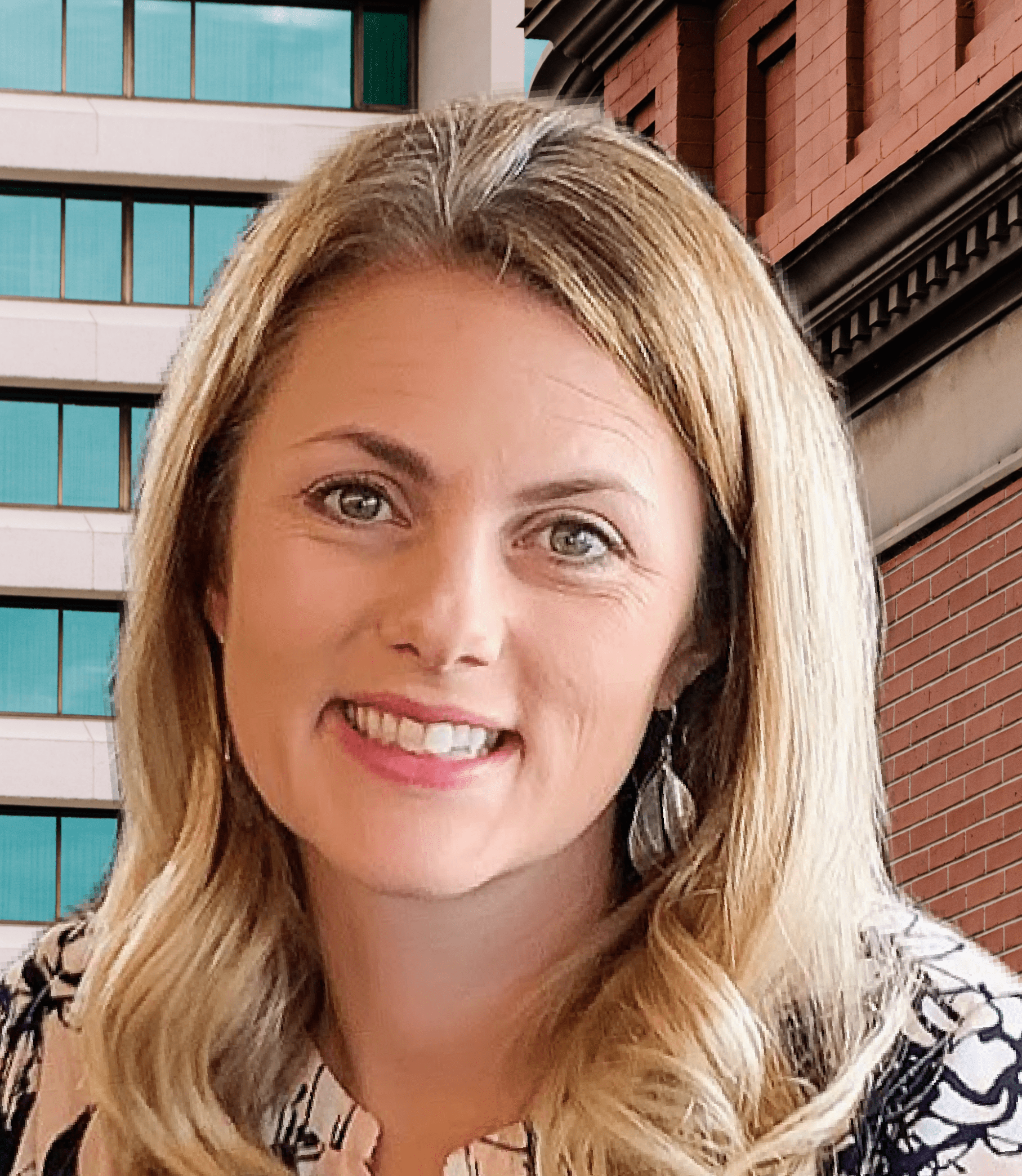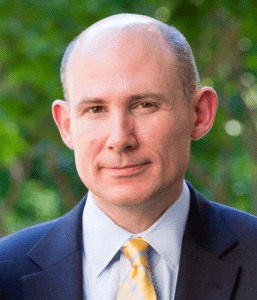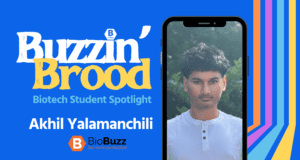
5 Questions with Jacque Myers, Healthcare and Life Sciences Lead, Slalom, LLC.
“5 Questions With…” is a weekly BioBuzz series where we reach out to interesting people in the BioHealth Capital Region to share a little about themselves, their work, and maybe something completely unrelated. This week we welcome 5 Questions with Jacque Myers, Healthcare and Life Sciences Lead, Slalom, LLC.
Jacque Myers has 15 years of experience working across the health ecosystem, specializing in evidence-based communications to promote healthy behaviors and advance large-scale business transformations. She has focused on digital health acceleration for the last six years, including connected health, workflow automation, and research dissemination and implementation.
Jacque currently leads healthcare and life sciences for Slalom’s D.C. market. Slalom is a global consulting firm focused on strategy, technology, and business transformation. Her portfolio includes business advisory services and technology enablement for emerging pharmaceutical companies, regional health systems, and coverage organizations. Before joining Slalom, she held various roles at Booz Allen Hamilton, where she led strategy and technology adoption for some of the nation’s largest pharmaceutical research and healthcare transformations.
1. Please introduce yourself to our audience with a look back at your education, training, and career.
My father died of chondrosarcoma three days after my fourth birthday. One of my only memories of him was going to an appointment at MD Anderson in Houston, where he was receiving an experimental treatment. I’m not sure what the treatment was or whether it slowed the progression of his cancer. I do know it was our only option, and I hope that his participation helped advance research for others with his condition.
Perhaps because of this experience, I grew up determined to use the talent and resources at my disposal to help people lead healthier, happier lives. I started out as a journalist, but rather than write about problems. I wanted to solve them. So I went to the Maxwell School at Syracuse to study public administration because I wanted to affect positive change on the biggest scale possible. That’s where I learned to manage programs with diverse stakeholders, apply evidence-based analysis to inform decisions, and perhaps most importantly, help bridge the public and private sectors.
Following Syracuse, I went to Booz Allen, where I learned that I could have a career in health without being a physician or scientist. I have been striving to learn, grow, and contribute my small part to health discovery and innovation ever since.
2. Tell us about your role at Slalom DC and what you do for your clients.
As the health and life sciences lead for Slalom DC, I’m working to build relationships across the local health and life sciences communities and find opportunities where our modern consulting approach can solve problems and create value. We live in an unprecedented era of scientific discovery, and the BioHealth Capital Region is at the epicenter of research and development in the post-COVID era. At Slalom, our goal is to empower the people and teams driving this BioHealth Revolution through a hyperlocal focus on cross-industry challenges and our partnerships with leading technology companies, including Salesforce, Microsoft, AWS, and Google.
Some of our regional focus areas include workplace strategies, new product launches, and data platforms for artificial intelligence and machine learning. We are also working to bring global insights from our engagements with biohealth companies in Boston, San Francisco, and New Jersey to help enable growth for emerging biohealth companies in the DMV.
3. In your LinkedIn profile, you say, “I envision Washington, DC as the beacon of health equity and innovation for our nation and the world.” What do you believe needs to happen for this to become a reality?
We are at a critical inflection point in the decades-long journey to eliminate health disparities. The proximity of innovative biohealth companies, renowned research universities, world-class hospital systems, and powerful public and nonprofit health institutions make DC the best place in the world to catalyze systemic change. However, realizing this potential will require bold ideas, multi-sector collaboration, and resounding commitments from senior health executives and policymakers at the national and regional levels.
While there is no panacea that will right the inequities created over centuries of injustice and discrimination, the way we respond to the urgency of this moment will affect generations to come.
Here are three ideas that could spark substantive change in our community:
- Capital Region Health Equity Summit: Convene top executives from the leading health organizations and coalitions in the region to develop a formal Health Equity Pact and roadmap for identifying, acknowledging, and addressing health disparities. Ideally, the summit would become an annual event with rotating hosts, carrying the gravity of global leadership summits.
- Greater Washington Health Equity Atlas: Combine data from initiatives like the Health Equity Tracker and the DMV Atlas with information from local health coverage organizations and delivery systems to develop a scorecard and dashboard that fosters community-level insights and drives accountability across the 5C lenses of health equity: Culture, Context, Coverage, Care, and Coordination.
- The Health Equity and Innovation Cooperative: Establish a digital hub to share health equity research, education, tools, and practices and co-create solutions that will benefit individuals and families across the DC region. The incredible talent and expertise in our communities could engender an open-source movement that would benefit researchers and healthcare providers around the world.
4. Being here in the BioHealth Capital Region for over a decade, what do you see as our biggest strengths and biggest weaknesses?
Our greatest strength is our people. The Washington, DC region attracts purpose-driven health researchers, luminaries, and entrepreneurs worldwide, united in our desire to improve wellness and reduce the burden of disability and disease. The proximity of public and private sector health organizations amplifies this strength, giving people the opportunity to work across the ecosystem and at every stage of the biohealth lifecycle.
However, the public, private, and nonprofit sectors in DC can sometimes operate in different dimensions, co-existing but not collaborating. Lack of multi-disciplinary and cross-sector collaboration can reinforce silos that create barriers to innovation and cripple our health and social systems. Perhaps if we spend more time working together, we can find ways to overcome challenges and realize a new health paradigm.
5. If There Was An Olympics For Everyday Activities, What Activity Would You Have A Good Chance At Winning A Medal In and why?
If multi-tasking were an Olympic sport, I would be ready to lead team USA all the way to the podium. With three young children and a husband who travels frequently, I listen to business books while cleaning; coordinate sports and playdates while exercising; and have mastered the art of eating breakfast, putting on makeup, and taking conference calls on the way to school dropoff. I sometimes feel like I’m falling behind at everything. Still, I’m incredibly grateful to work with some of the most brilliant people in the world on engagements that will help people in the DC region and beyond live their lives as healthy as possible.
Thank you to 5 Questions with Jacque Myers, Healthcare and Life Sciences Lead, Slalom, LLC. for participating in the 5 Questions with BioBuzz series, and stay tuned for more interviews with others from across the BioHealth Capital Region and beyond.






